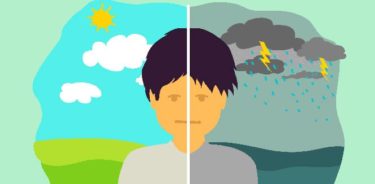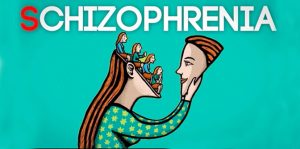Depression is a serious, yet a treatable mental disorder which occurs with some emotional, mental and physical symptoms. The most remarkable feature of it is a sad and down mood with an obvious decrease in feeling pleasure. People with depression are in an unhappy, pessimistic and desperate condition. They do not take pleasure, they feel sad and lonely, and they lose their interest in themselves and their environment. Not only depression is an important disorder itself; but also its relationships with and contributions to comorbid disorders are crucial. For instance, women having depression during or after pregnancy may have serious and important problems. Moreover, scientific studies show that it has a strong relationship with development of diabetes and coronary heart diseases.
Table of Contents
What is depression?
Depression is a serious disorder. It is not feeling sad or unhappy for a short period of time. It is one of the most common disorders across the world, and it may cause several and severe obstacles. It is a mental disorder. It may have genetic, biological and psychological bases. It may affect people of all ages; however, it is more common in women and young people.
Women may also have postpartum depression. According to WHO, depression is one of the most effective disorders which impacts individuals in a negative way and causes several obstacles. It is usually seen with anxiety disorders; and in these cases, suicide risk can increase significantly.
Despite its seriousness, depression is usually not recognized or is treated inefficiently. Therefore, individuals with depression and their close ones may have several important problems. It is known that depression plays an important role in occurrence of heart attack, stroke, diabetes and such important diseases; and it makes courses of many chronic illnesses worse.
Causes of depression
- Negative life events, loss of loved ones and grief
- Problems in work life
- Marriage and family issues
- Childbirth and postpartum
- Genetic susceptibility
- Excessive use of alcohol
- Some illnesses such as cancer, MS, epilepsy and AIDS, and drugs
- Menopause and Andropause syndromes
- Seasonal changes
These factors may cause depression. However, they are not meant to cause depression 100%. These are only risk factors.
Symptoms of depression
- A decrease in daily routines and excessive exhaustion
- Withdrawing from social contexts and relationships, and having difficulty in sharing problems
- A considerable decrease in sexual interest and desire
- Not eating, lack of appetite, loss of body weight or overeating
- Excessive sleeplessness, having difficulty to sleep, or oversleeping and not being able to wake up
- Headaches, neck pain, backache, arthralgia, and complaints about stomach or intestinal
- Having difficulty to pay attention and stay focused; and amnesia
- Loss of motivation and enjoy of life
- Feeling extremely low and sad
- Feeling desperate and hopeless; thinking about death and suicide
- Feeling unworthy and guilty
These are only basic symptoms and their importance for diagnosis may change from one person to another. Therefore, not every people with these symptoms are meant to be suffering from depression.
Types of depression
Not all types are the same. Major depressive disorder, known as clinical depression, and chronic depression are the most common types. Clusters of symptoms which are seen in the same type of depression are not the same in each individual with it. Each person lives depression in a different manner, and each type has different weights of different symptoms.
Major depressive disorder (Major depression)
Major depressive disorder, or clinical one, can affect individuals’ daily routines. Depressive symptoms cause troubles and dysfunctions. Individuals with major depression are in a deep and continuous feeling of hopelessness and desperateness.
Symptoms of major depression
- Not being able to work
- Sleeplessness
- No desire to eat
- Loss of pleasure in activities which used to give pleasure
- Depressive mood and loss of interest in environment
Risk factors for major depression
Approximately 20-25% of the population have major depressive disorder in their lives. It affect children, adolescents, adults and older people. Women have two times more depression than men. Adolescence, menstruation, pregnancy, abortus and menopause cause hormonal changes; and these changes are thought to be increasing the risk of major depressive disorder.
Other factors increasing the risk of it may be increasing amount of responsibilities at both home and work. Parenting, career issues, commitments, and taking care of old parents may increase the risk. Especially, single parenting is an important risk factor for it.
Causes of major depression
There is not a trigger for every person, but these are some triggers of major-depression:
- Sadness due to loss of loved one because of death, divorce or break-ups
- Interpersonal differences and sense of deprivation which cause social isolation
- Major life changes such as moving out, graduation, changing job, or retirement
- Conflicts with managers or partners
- Physical, sexual or emotional abuse
- In some families, depression is transmitted from one generation to the next one. However, there are also numerous cases in which individuals with no depression history in their familial background have depression.
Diagnosis of major depression
Mental health specialists evaluate individuals in many different aspects and make a diagnosis according to them. They ask questions about psychiatric history of individuals and their families. They may conduct a depression mapping test.
Specialist may require some blood tests in order to eliminate the possibility that another medical condition may show symptoms. For instance, hypothyroidism have similar symptoms as depression. Alcohol abuse or dependence, some medications, stroke or use of illegal drugs may also arise symptoms.
What is chronic depression?
- It is a long lasting (more than two years) depressive mood.
- It is less severe than major depression and they do not affect individuals’ daily lives as severe as major depression.
- Individuals with chronic depression can also have major dep. throughout their lives.
What is atypical depression?
It is a mood which gets better or worse as a reaction to life events, with the symptoms of overeating, oversleeping, exhaustion and excessive sensitiveness. In typical depression, common sadness is more obvious.
What is bipolar disorder and manic depression?
Bipolar disorder, sometimes it is called as manic depression, is a complex disorder which has shifts between major depressive periods and extreme enthusiasm-mania periods. It has two subtypes which are bipolar I and bipolar II. In bipolar I, individuals have at least one manic period, sometimes major depressive periods accompany them. In bipolar II, individuals have at least one major depressive period and at least one hypomanic period.
Seasonal depression
- Seasonal depressions occur in the same time in each year.
- Usually, they start in autumn or winter; and they end in spring or summer.
- This condition is different than casual down mood in winter time or distress due to staying in chambers.
What is postpartum depression?
75% of women who deliver babies have melancholia. However, in 10% of them, a serious condition, postpartum depression arises. When a mother has major depression in a month after the birth, she gets postpartum diagnosis. No matter which symptoms you show, it is very important to talk to your doctor. A correct diagnosis and an effective treatment are crucial for coping with depression.
Depression in children
Some behavior patterns in children may hinder the differentiation of depression. It is important due to two reasons: First, it affects negatively the development of children. Second, it may cause emotional, social and psychological regressions; in fact, it may affect also the future development.
Distinctively from adults, depression symptoms in children are seen as physical symptoms like headache, tummy ache, nausea and exhaustion.
Depression symptoms in children
- Difficulty in paying attention, keeping concentration, and learning
- Thoughts about self-worthlessness and being unloved
- Decrease in self-confidence
- Agitation, quick and frequent crying, and irritability
- Loss of interest in environment
- Failure at school
- Sleep disturbances
- Changes in appetite
- Deceleration in thinking and difficulty in making decisions
- Decrease in playing, speaking, and being curious
- Getting tired easily
- Being angry at oneself, getting angry easily and not liking oneself
- Being afraid in night times and bedwetting
- Being easily ill
Depression treatment
Untreated depression may harm to the individual in direct or indirect ways. It increases the tendency to use/abuse alcohol or drugs. It contributes to occurrence of many medical illnesses or makes them worse. False beliefs about medications make difficult to apply to doctors, and this cause depression to become chronic. Treatment of individuals with depression needs a comprehensive approach.
The most common treatment method is using medication and psychotherapy together.
- Antidepressants: The medications which are used to treat depression are called as “antidepressants”. They do not have many side effects. Contrary to the common belief, they do not cause dependence. With the help of antidepressants which are developed in recent years, individuals can get better without any need for any other help. Medications usually show their full effects in 2-3 weeks; and thus, being patient is essential.
- Psychotherapy: Psychotherapy increases the effectiveness of treatment. It aims to make individuals change their negative thought and behavior patterns and become more active to cope with depression.
Anxiety disorders
Depression and anxiety disorders are mostly comorbid conditions. Anxiety disorder is a general term which is used for various anxieties and fears that affect functionality of individuals negatively. Palpitations, difficulty in breathing, shaking hands and feet, extreme sweating, excitement, and the sense of that a bad thing is just about to happen are some of the symptoms.
Anxiety should not be thought as a disorder in every condition. In fact, it is a common and a natural emotion which everyone experiences. However, it is accepted as a disorder when it starts to intervene the functionality of a person in daily life.
Especially, when it decreases individuals’ productivity, disrupts social relationships and symptoms such as shaking, dryness of mouth, and muscle tension start to be seen; it is accepted as a disorder.
Anxiety requires treatment in these conditions:
- Individuals having obstacles in occupational and familial life
- Anxiety causing problems in social relations
- Anxiety keeping individuals’ minds busy most of the day
- Individuals having difficulty in controlling their anxiety and fears
- That this continues for at least 6 months
Suggestions for individuals with depression
- Be patient about healing. It usually develops slowly; and therefore, its treatment requires time.
- Take only the medications which a doctor recommend, and use them according to your doctor’s recommendation.
- Inform your doctor about each change in your health status. Share your concerns and fears with your doctor.
- Even when you feel good, do not stop taking your medications unless your doctor tell you to stop. You must decide how to end treatment with your doctor.
- Set little and achievable goals in your daily life.
- Get up and leave the bed as soon as you wake up. Obsessive and persistent thoughts can disturb you when you are in bed and awake.
- Be active physically.




